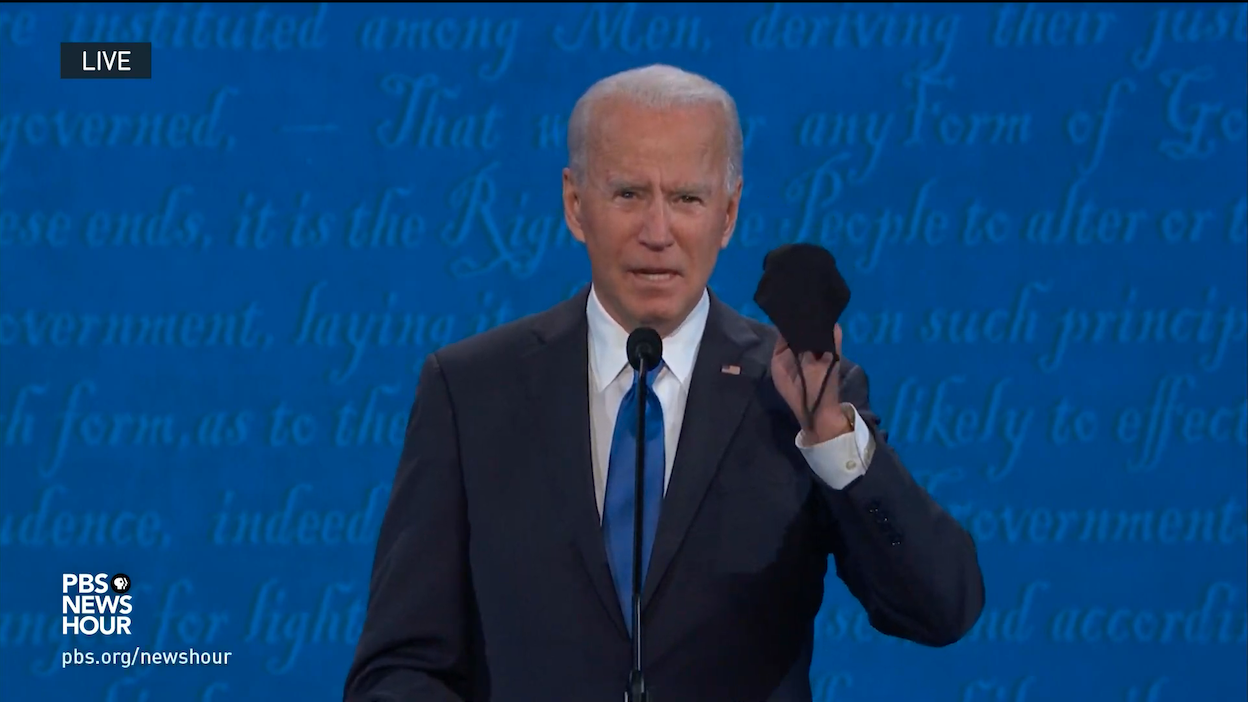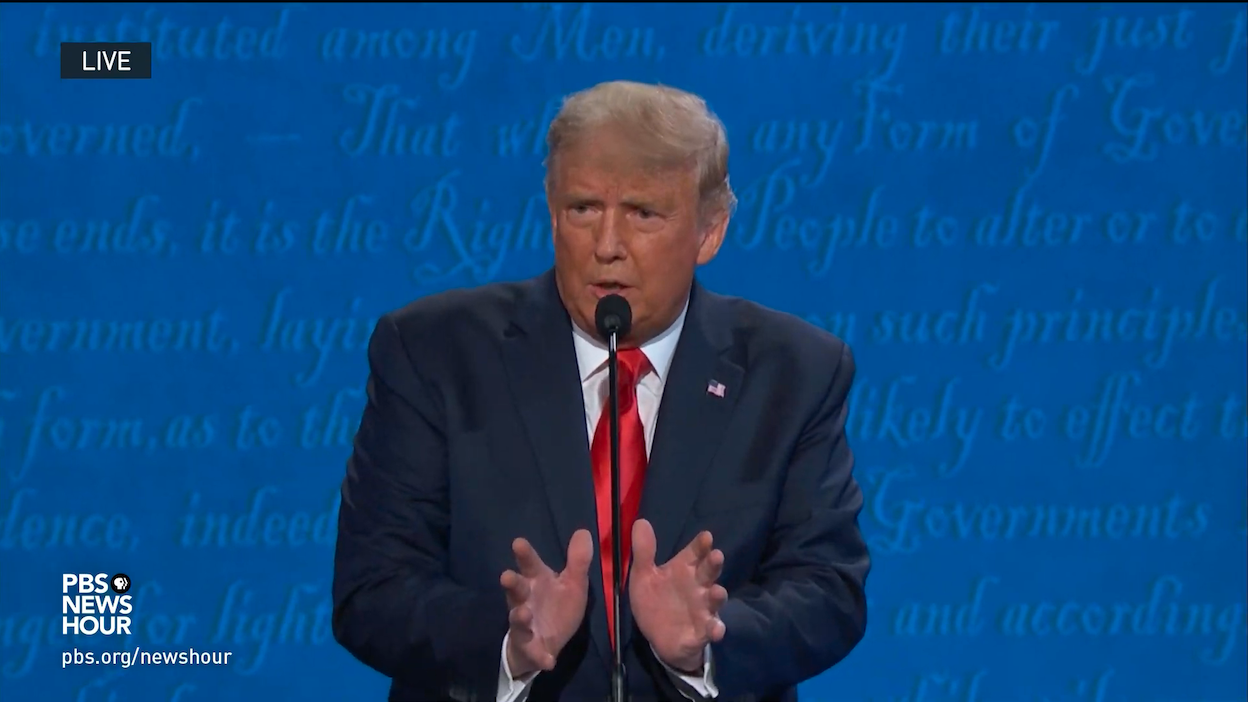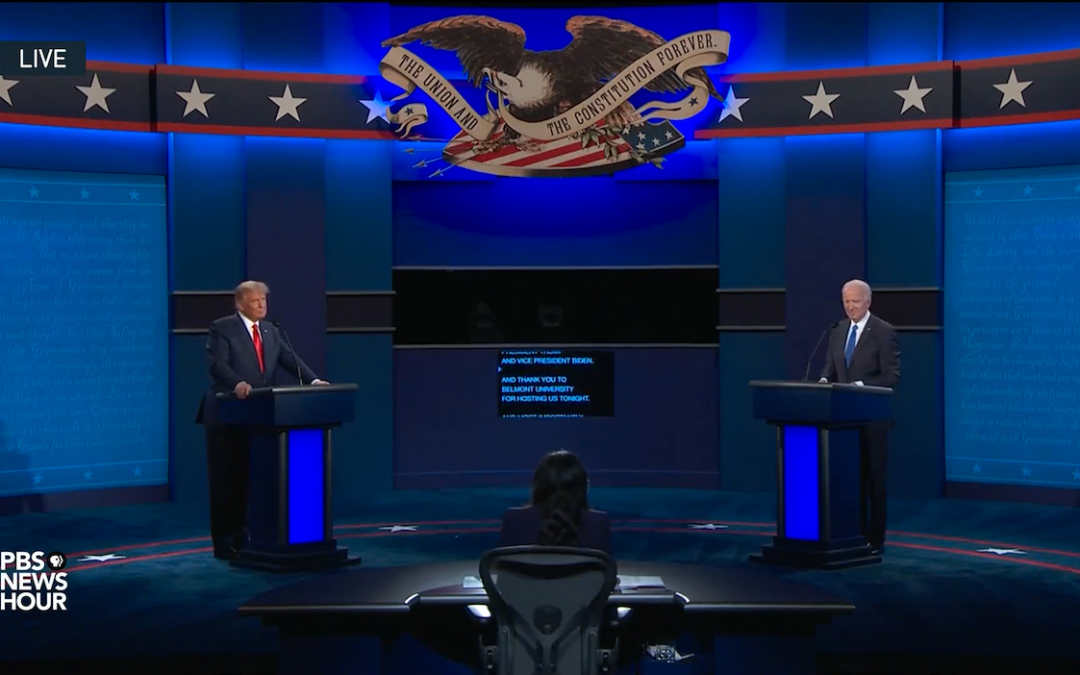WASHINGTON—President Donald Trump and Democratic presidential nominee Joe Biden went head-to-head over how to best combat the coronavirus, boost the economy and build a future for the country in Thursday’s presidential debate in Nashville, Tenn., the final of the 2020 election cycle.
Trump defended his record on battling the coronavirus and boosting the economy despite the nearly 225,000 Americans already dead from the virus. “This is a worldwide problem,” he said, “but I’ve been congratulated by the heads of many countries on what we’ve been able to do.”
Democratic presidential nominee Joe Biden painted a different picture of the country’s current situation, foretelling “a dark winter” ahead and the need for a new path forward due to the president’s missteps. “Anyone who is responsible for that many deaths should not remain as President of the United States of America,” he said.
Trump also repeated the false claim that “one or two companies” would have a coronavirus vaccine ready for distribution in weeks and that it “will definitely be by the end of the year.”
NIH Director and infectious diseases expert Dr. Anthony Fauci told Congress last month that a coronavirus vaccine would almost certainly not be available for public distribution until next spring or later.
Trump echoed his 2016 campaign pledge to end the American Care Act and keep protections for preexisting conditions, but he failed to offer an alternative health care option, an oversight Biden capitalized on by offering his own solution to the ACA: “Bidencare.”

Democratic presidential nominee Joe Biden supports a national approach to coronavirus protections and says he will create Bidencare, an alternative to Obamacare that includes a public option. [PBS NewsHour]
The former vice president said that Bidencare would be similar to its predecessor, Obamacare, but include a public option that would allow the uninsured who qualify for subsidized insurance to be automatically enrolled in coverage that competes within the insurance marketplace.
“This was a debate that had many fewer curveballs than the prior debates,” said Monica Prasad, political science professor at Northwestern University. That was thanks in part to the Commission on Presidential Debates decision to mute the mic of the opposing candidate during opening responses to each topic.
In one of the most consequential discussions of the night, the candidates sparred over the best way for the country to provide economic relief due to the coronavirus,. Trump emphasized that “we have to open our country” and repeated that Biden would “close down the country if one person… says we should close it down.”
“I’m going to shut down the virus, not the country,” Biden said, before blaming the president’s “ineptitude” for causing the country to need widespread shutdowns.
The candidates also offered vastly different perspectives on where the country stands on race relations and how they would tackle criminal justice issues and systematic racism.
Trump continued to laud his administration’s work. “I give them more money than they asked for,” he said, after repeating that “Nobody has done more for the Black community than Donald Trump.” He refused to acknowledge the existence of systematic racism in America.

President Donald Trump says he is the least racist president in history since Abraham Lincoln and refuses to acknowledge systematic racism in the country. [PBS NewsHour]
Prasad said that Trump often relied on obscuring Biden’s record and positioning instead of sharing his own plans as a way to refocus the conversation on his supposed merits and Biden’s real or imagined drawbacks. “Once so much untruth gets into the atmosphere, it creates this fog, and no one knows what to believe,” she said.
In response to a question about how global warming disproportionately impacts minority communities, Biden doubled-down on his previous statements about systematic racism and said the country needs to move away from pollution producing oil refineries in favor of renewable energy sources like wind and solar. He also repeated that he would limit fracking, not ban it outright.
“Climate change, global warming, is an existential threat to humanity,” Biden said. “We have a moral obligation to deal with it.”
Trump talked about the positive economic benefits of oil refineries and more traditional energy sources, signaling his intention to maintain his administration’s skeptical position that global warming is a threat.
Prasad said that both candidates were able to meet their goals in the debate, but said “Trump did a spectacular job” shoring up his base and painting Biden as a left-leaning COVID19 fearmonger. Biden avoided major gaffes and clearly differentiated himself from the competition, she said, but may not have drummed up substantial additional support for his campaign.

